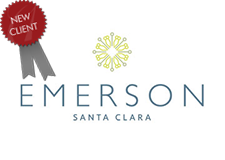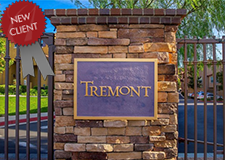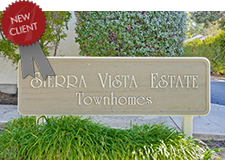 Previously, we wrote on a decision published by the National Labor Relations Board (“NLRB”) wherein the NLRB concluded that, where a contracting party has reserved the authority to exercise control over the employees of another, said contracting party will be found to be the “joint employer” of the other entity’s employees. In the case of Browning-Ferris Industries of California, Inc. (2015) NLRB No. 672 (“BFI”), BFI retained the services of Leadpoint Business Services (“LBS”) to provide staff to one of BFI’s recycling facilities. Although the contract between BFI and LBS recognized that the personnel staffed by LBS were the employees of LBS, BFI retained some control over the employees. As such, the NLRB concluded that as long as a company retains (e.g., through the execution of a contract) the authority to control the employees of another, said company will be given joint-employer status. (Id. at p. *2.)
Previously, we wrote on a decision published by the National Labor Relations Board (“NLRB”) wherein the NLRB concluded that, where a contracting party has reserved the authority to exercise control over the employees of another, said contracting party will be found to be the “joint employer” of the other entity’s employees. In the case of Browning-Ferris Industries of California, Inc. (2015) NLRB No. 672 (“BFI”), BFI retained the services of Leadpoint Business Services (“LBS”) to provide staff to one of BFI’s recycling facilities. Although the contract between BFI and LBS recognized that the personnel staffed by LBS were the employees of LBS, BFI retained some control over the employees. As such, the NLRB concluded that as long as a company retains (e.g., through the execution of a contract) the authority to control the employees of another, said company will be given joint-employer status. (Id. at p. *2.)
The BFI decision caused quite a stir in the realm of common interest developments. As discussed in our prior post, many associations retain a community management firm to facilitate the duties of the association (e.g., solicit bids for common area maintenance and repair). And while the community managers were historically viewed as the employees of the management firm, the BFI case raised some questions with respect to the nature of the relationship between the employees of a management firm and the association.
Nevertheless, on December 14, 2017, the NLRB did an about-face reversing its decision in the BFI case. In Hy-Brand Industrial Contractors, Ltd. (“Hy-Brand”) the NLRB held that the BFI standard was “a distortion of common law as interpreted by the Board and the courts…[wa]s contrary to the [National Labor Relations] Act…is ill-advised as a matter of policy, and its application would prevent the [NLRB] from…foster[ing] stability in labor-management relations.” ((2017) 365 NLRB No. 156, *2.) Accordingly, the NLRB concluded that a joint-employment relationship will be found where there is evidence demonstrating that an entity has “exercised joint control over essential employment terms (rather than merely having “reserved” the right to exercise control).” (Id. at p. *5 (emphasis original).) Said control must be “direct and immediate,” as opposed to “indirect,” and must be more than control which is “limited and routine.” (Id.)
Although the BFI case has been abrogated restoring the prior position of the NLRB, associations and management companies must continue to exercise caution when hiring vendors to perform services for the association to prevent a finding of a joint-employment relationship. In Heiman v. Workers’ Compensation Appeals Board, the Court of Appeal concluded that the community manager (and by extension, the association) was the joint-employer of an employee of an unlicensed and uninsured contractor. ((2007) 149 Cal. App. 4th 724.) Under California law, one of the legal consequences for hiring an unlicensed contractor is that the person who hired the unlicensed contractor may be considered an “employer” for tort-liability purposes. (Id. at p. 735.) Since the community manager hired an unlicensed contractor, it was found to be the joint-employer of the injured worker. And, because of the agency relationship between the management company and the association, the association was found liable. (Id. at p. 744.)
| In sum, despite the shift in position, associations must continue to insulate itself from a finding of joint-employer status by ensuring that it retains only licensed and insured vendors, and adequately sets forth the scope of work and the level of care and skill required to achieve the desired result within its contract with the vendor. Moreover, the contract must include a provision requiring the contractor to indemnify and hold the association harmless in the event a labor dispute arises between the contractor and its employees. |
-Blog post authored by TLG Attorney, Matthew T, Plaxton, Esq.
 HOA Lawyer Blog
HOA Lawyer Blog


 We are proud to announce that Flower Street Lofts Homeowners Association has selected Tinnelly Law Group as their associations’ legal counsel.
We are proud to announce that Flower Street Lofts Homeowners Association has selected Tinnelly Law Group as their associations’ legal counsel. We are proud to announce that Emerson Community Association has selected Tinnelly Law Group as their associations’ legal counsel.
We are proud to announce that Emerson Community Association has selected Tinnelly Law Group as their associations’ legal counsel.
 We are proud to announce that Tremont Neighborhood Corporation has selected Tinnelly Law Group as their associations’ legal counsel.
We are proud to announce that Tremont Neighborhood Corporation has selected Tinnelly Law Group as their associations’ legal counsel. We are proud to announce that Sierra Vista Estates Townhomes Association has selected Tinnelly Law Group as their associations’ legal counsel.
We are proud to announce that Sierra Vista Estates Townhomes Association has selected Tinnelly Law Group as their associations’ legal counsel. The Governor has signed
The Governor has signed  *Asked & Answered
*Asked & Answered We are proud to announce that Brea-Olinda Master Community Association has selected Tinnelly Law Group as their associations’ legal counsel.
We are proud to announce that Brea-Olinda Master Community Association has selected Tinnelly Law Group as their associations’ legal counsel. California is currently facing a serious shortage of affordable housing. The housing crunch is impacting individuals and businesses in all parts of the state. Businesses are having trouble attracting and retaining employees and individuals face longer commute times and overcrowding, among a host of other issues.
California is currently facing a serious shortage of affordable housing. The housing crunch is impacting individuals and businesses in all parts of the state. Businesses are having trouble attracting and retaining employees and individuals face longer commute times and overcrowding, among a host of other issues.